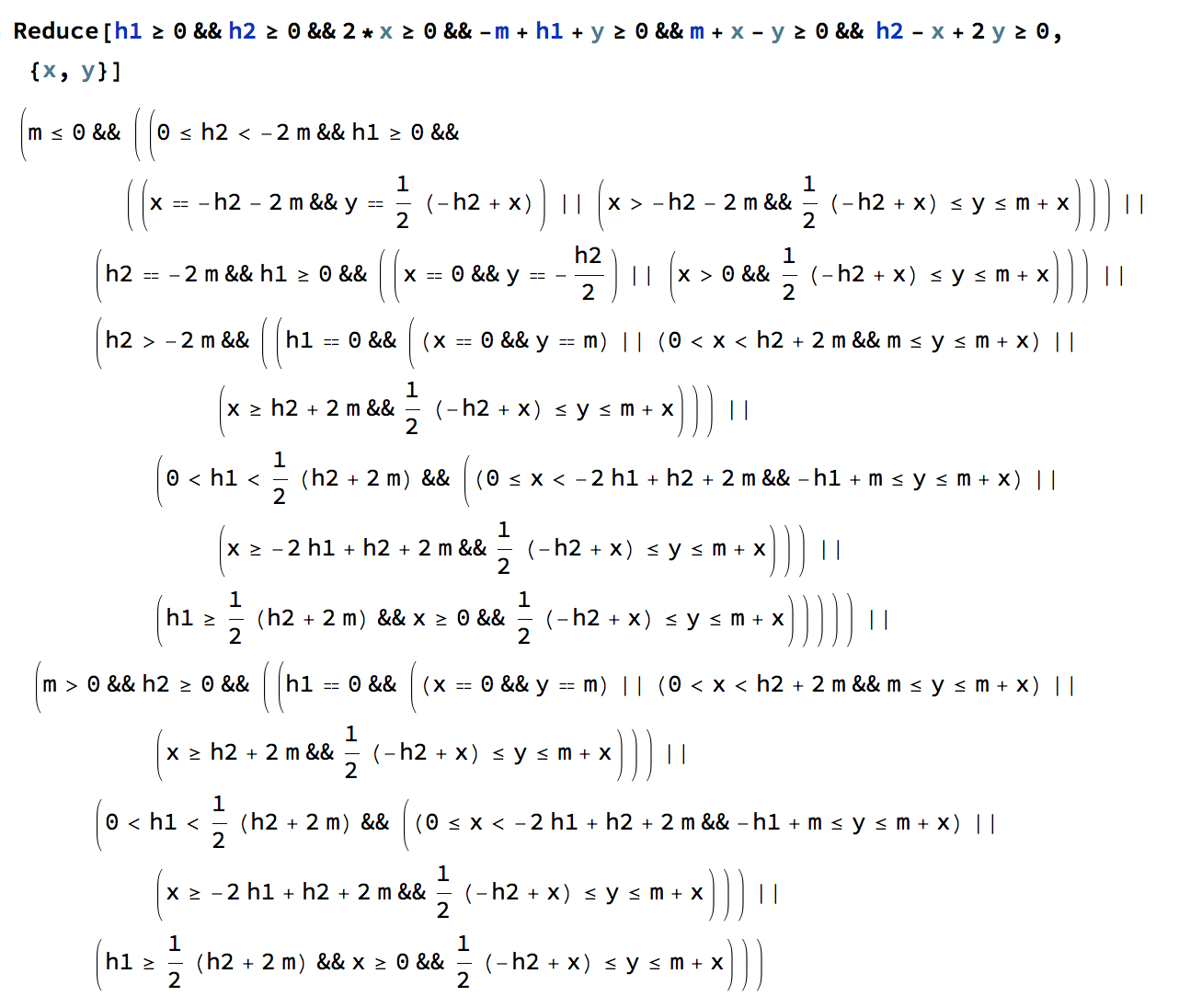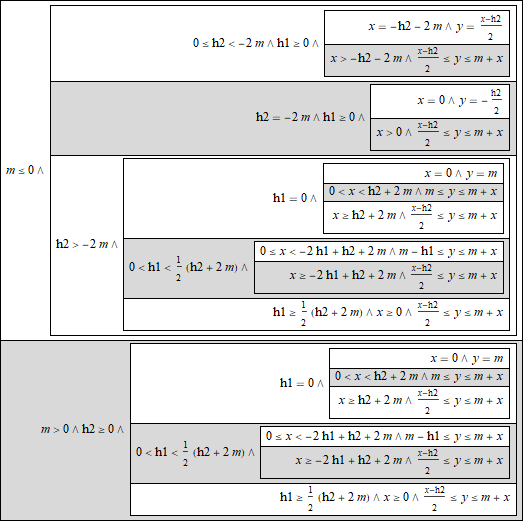I am trying to reduce a bunch of inequalities using the Reduce command in Mathematica. But the output is very convoluted and I am wondering if there's a way to systematically organize it so that I can actually write it on a piece of paper, or at the very least, read it correctly.
For example,
Reduce[h1>=0 && h2>=0 && 2*x>=0 && -m+h1+y>=0 && m+x-y>=0 && h2-x+2y>=0, {x,y}]
produces output that looks like this
which, needless to say, looks horrendous.
Is there a way to clean this up?


